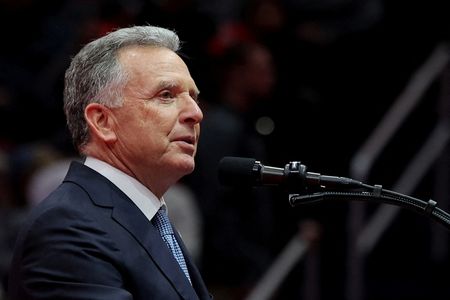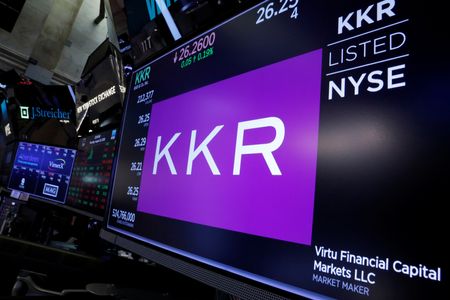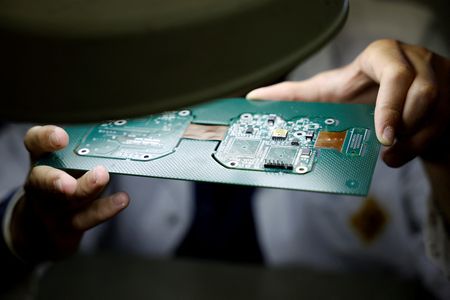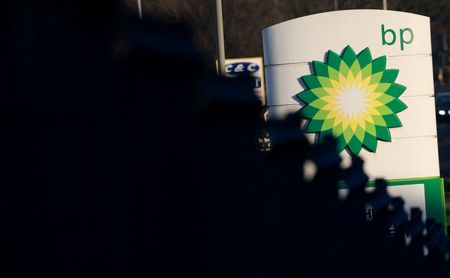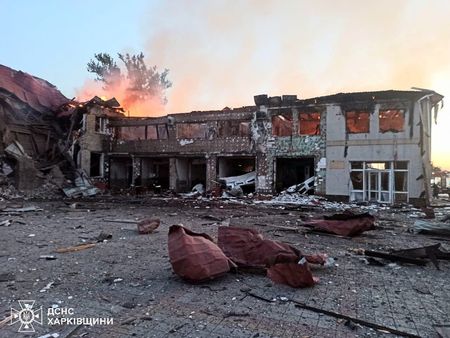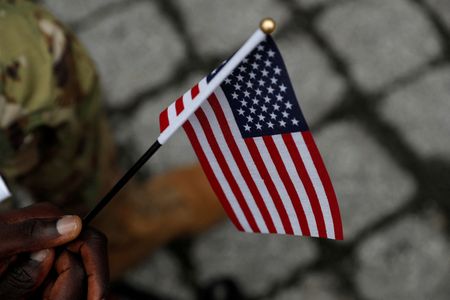By Kanishka Singh
WASHINGTON (Reuters) – President Donald Trump’s special envoy Steve Witkoff and Treasury Secretary Scott Bessent said on Sunday they expected that an agreement would be signed this week on U.S. access to Ukraine’s critical mineral deposits.
Ukrainian President Volodymyr Zelenskiy wavered “in his commitment towards that a week ago,” Witkoff said in a CNN ‘State of the Union’ interview, referring to the Ukrainian leader’s rejection of the original U.S. proposal. “The president (Trump) sent the message to him. He’s not wavering any more.”
Zelenskiy realized “that we have done so much (for Ukraine) … and I think you’ll see it (the deal) signed this week,” continued Witkoff.
Zelenskiy had previously rejected U.S. demands for $500 billion in mineral wealth from Ukraine to repay Washington for wartime aid, saying the U.S. had supplied nowhere near that sum.
“The deal will be signed,” Bessent said in an interview on Fox News on Sunday, adding he was “hopeful” it will happen in the coming week.
The Ukrainian president’s chief of staff said on Sunday that the next round of negotiations with the United States over a deal will continue.
Trump has been pushing for a deal to end the war in Ukraine and held separate calls with Russian President Vladimir Putin and Zelenskiy earlier this month.
Trump’s top officials recently met their Russian counterparts in Saudi Arabia in talks that did not include Ukraine. Trump also called Zelenskiy a dictator on Wednesday. Trump has urged the presidents of Russia and Ukraine to work together on ending the war, which began when Russia invaded Ukraine in February 2022. Russia had annexed Crimea in 2014.
Trump faced criticism domestically and internationally in the past week after he said Ukraine “should have never started” the war before reversing course and saying Russia did in fact invade Ukraine.
“The war didn’t need to happen. It was provoked. It doesn’t necessarily mean it was provoked by the Russians. There were all kinds of conversations back then about Ukraine joining NATO. That didn’t need to happen. It basically became a threat to the Russians,” Witkoff told CNN on Sunday.
(Reporting by Kanishka Singh and Jonathan Landay; Editing by Tomasz Janowski and Andrea Ricci)

